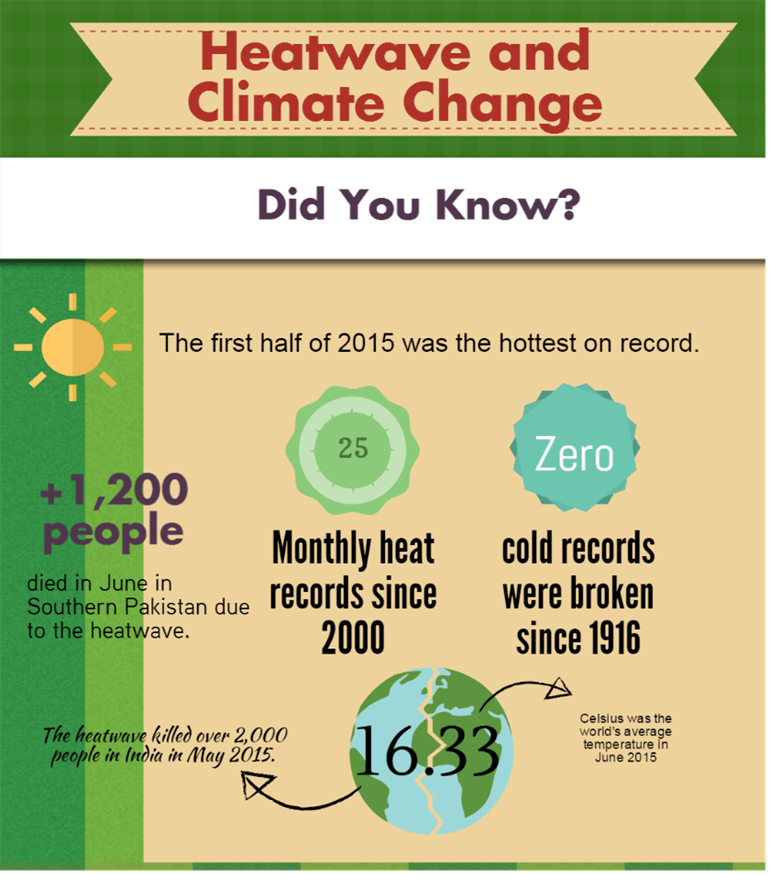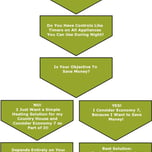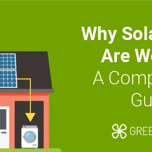Answer these simple questions and we will find you the BEST prices
Which type of solar quotes do you need?
It only takes 30 seconds
100% free with no obligation

Get up to 4 quotes from our selected suppliers by filling in only 1 form

Save money by comparing quotes and choosing the most competitive offer

Our service is 100% free and with no obligation
- GreenMatch
- Blog
- The Heatwave: A Reason To Invest In Renewables?
The Heatwave: A Reason To Invest In Renewables?
2015 Is Said to Be the Warmest Year on Record, Is This a Sign to Focus More on Renewable Energy?
Spain, France, Germany, Italy are just some of the countries that have been recently hit by the African heatwave. In fact, the year 2015 has been recently tagged as the warmest year on record by the National Oceanic and Atmospheric Administration, and the past month of June has been the hottest ever. The average world's temperature was 16.33 Celsius degrees for June, 0.12 degrees higher than compared to the same month in the year 2014.
The heatwave has not only taken protagonism on the media and news, but has also caused serious issues all over. For example, over 1,200 people died in Southern Pakistan last month due to the high temperatures, and more than 2,000 died in India in May. With this in mind, it is clear that climate change has turned into a serious problem that should be tackled fast. Even in countries like Germany (not so popular for its heat), the heatwave has caused disruptions on public transport, energy supply and inconveniences to the population, specially to the elderly.
While not many saw the benefits of investing in renewable energy some time ago, the adepts to such technologies are increasing and spreading all around the world. Some thought it unthinkable to invest in solar panels in the UK for example. However, a growing number of solar panels in this area have proved that even with grey skies, the technology works.

What Are the Benefits of Solar Energy?
Solar energy can be converted into electricity by means of solar panels. With this in mind, it is unreasonable that countries in Africa for example, with a year long sun radiation, have lots of issues with the energy supply. In fact, Africa is at the same time, one of the continents where high temperatures are having the greatest impact, and one with the greatest potential for solar energy. However, it is estimated that 70% of sub- Saharan African inhabitants do not have a reliable access to electricity.
The potential of solar energy is still untapped not only in Africa but all around the world. For years, the argument against this source of energy has been its high cost and not-so promising efficiency. However, as demand for solar panels increased and the technology has improved, prices of the equipments have dropped considerably whilst their efficiency has risen. Additionally, the urge to invest in alternative sources of energy has been intensified by the clear effects of climate change. It is evident now, that a solution is necessary to tackle the growing greenhouse effect and its harm to the environment.
The good thing of solar energy is that this energy will never last and harnessing it by means of solar panels, does not harm the enviroment (as opposed to fossil fuels). Additionally, in the UK for instance, the government offers various incentives like the Feed In Tariff that make this option even more convenient seen from a financial perspective.
On average, the actual technology is able to produce energy for a house of 2-3 people with a 3kWh system and for more than 4 with a solar system with the size of 5kW. The efficiency is constantly being developed as well as the batteries and energy storage features. This makes it possible to use solar power to run appliances even when the sun is not shining.
Fill in the form in just 1 minute
We strive to connect our customers with the right product and supplier. Would you like to be part of GreenMatch?




